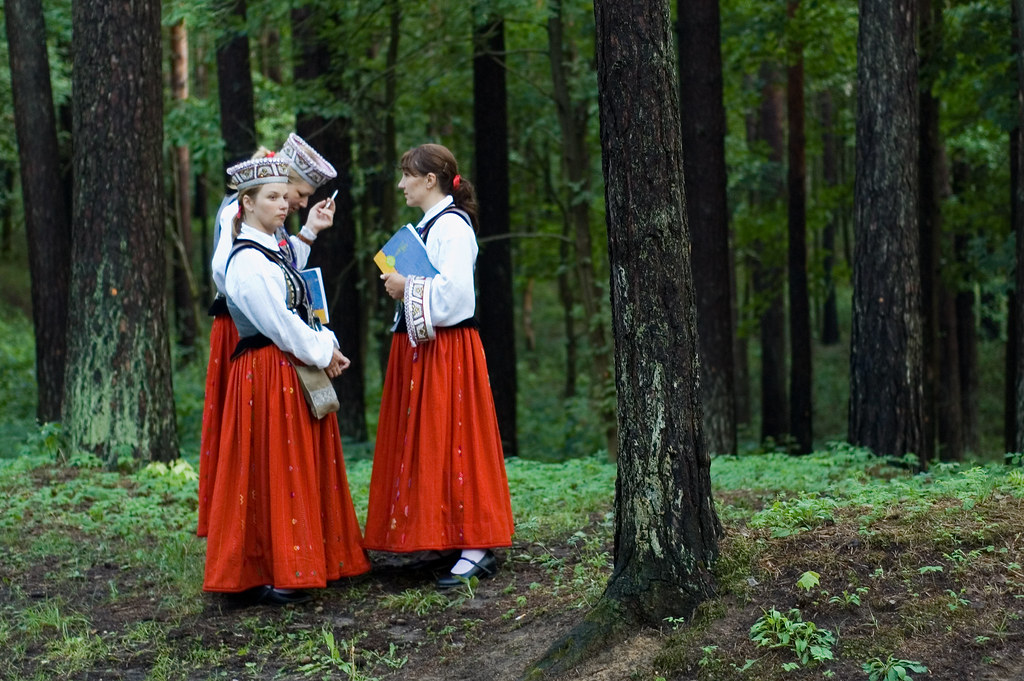
So the Song Festival is now ancient history; weeks have passed. But such is the distinctly unbloglike publishing schedule of the Holla. In any case, our correspondent managed to attend three events: A dance performance in the hockey arena, which was not unlike really professional square dancing; A concert where the greatest stars of Latvian music played updated versions of folk songs, including one set to the Marimba - the national instrument of Guatemala; and the dress rehearsal for the closing concert.
The closing concert itself was a tough ticket to get, but from watching on TV, it wasn't too terribly different from the rehearsal. The point was the same - a choir of 12,000 participants singing traditional Latvian songs, some merely pleasant, and some downright moving. Unfortunately, the photo department's camera was deemed "professional" and therefore not allowed into the concert. There was no internet handy to show them just how unprofessional this publication actually is, so we went armed only with the camera on our snazzy new Euro mobile phone. We captured some pictures of the 12,000 person choir that we are now unable for the life of us to get off the phone and onto the internet. So, if you ever visit, we'll show you the pictures on the phone. Or, you could check out the pictures taken by the official Song Festival photographers here and here to get a view of the giant stage they've built for a choir that big.
Anyway, singing is seriously a big deal here. It's really striking how strongly the Latvians feel singing is tied to their culture; and not pop-star singing, but communal singing by the people. There were lots of young people participating in the group singing of folk songs, and from what I could gather, not under duress.
And it is a powerful tradition. The first Song Festival happened in 1873. More recently, the Baltics' independence from the Soviet Union came in what is sometimes known as "The Singing Revolution." Gathering together to sing patriotic or traditional songs was an important part of the popular protest against Soviet rule, perhaps most famously in Estonia, but also importantly in Latvia and Lithuania. We consider ourselves very fortunate to have arrived just in the nick of time to see the current manifestation of this tradition. Book your tickets now for the next one in 2013.




No comments:
Post a Comment